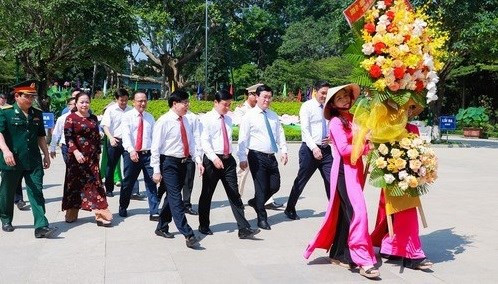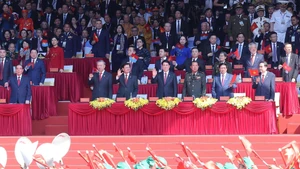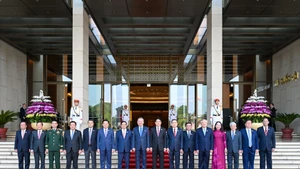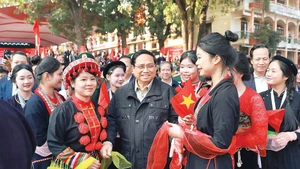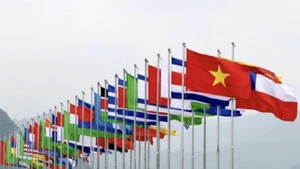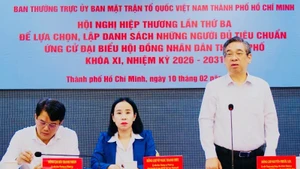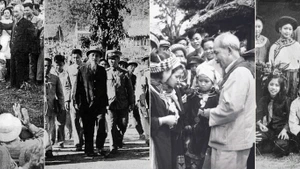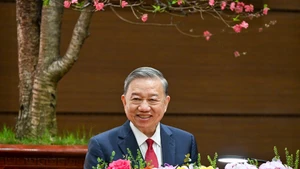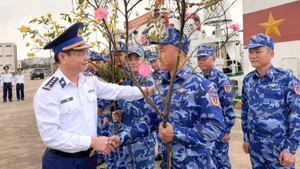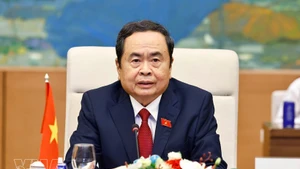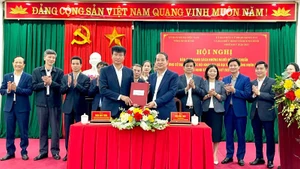At the Kim Lien special national relic site in his hometown in Nam Dan district, central Nghe An province, a delegation of the provincial Party Committee, People’s Council, People’s Committee, and Vietnam Fatherland Front Committee offered incense to the late leader on May 18.
They expressed their gratitude to President Ho Chi Minh – a talented leader of the Vietnamese Party and people, a brilliant activist of the international communist and workers’ movement, and a man dedicating his entire life to the struggle for national liberation, peace, and happiness of the peoples of Vietnam and the world.
The Kim Lien special national relic site, linked with the family and childhood of the late leader, holds special values related to his life and career.
On this occasion, many delegations of agencies, localities, and people from Nghe An and other provinces have also visited the relic site to pay homage to President Ho Chi Minh.
Also on May 18, a photo exhibition on the President was opened in Da Lat city by the Information and Education Board of the Party Committee and the Department of Culture, Sports and Tourism of the Central Highlands province of Lam Dong.
The event features hundreds of photos, books, and articles about the life, career, ideoglogy, moral example, and style of the leader.
Lasting through May 30, it also introduces the practical activities held from grassroots to provincial levels in Lam Dong to step up the studying and following of President Ho Chi Minh’s ideology, moral example, and style.
The same day, the Su that (Truth) National Political Publishing House launched the “Nhat ky trong tu” (Prison Diary) collection of poems by Ho Chi Minh. The new version was translated by poet Quach Tan.
The collection comprises 133 poems written in the Chinese script and created in a special circumstance.
In August 1942, by the name of Ho Chi Minh, Nguyen Ai Quoc in his capacity as a delegate of “Viet Nam Doc Lap Dong Minh Hoi” (League for the Independence of Vietnam) and the international anti-invasion division of Vietnam went to work in China. When arriving in Guangxi province, he was imprisoned for no reason by the Chiang Kai-shek administration and began a 13-month journey full of hardships through 18 prisons in 13 districts of Guangxi. During that time, from August 1942 to September 1943, he created the Prison Diary. The poems vividly reflect the prison regime and part of the Chinese society under the rule of Chiang Kai-shek.
On May 18, the fifth national Olympiad on Marxist - Leninist sciences and Ho Chi Minh’s ideology was kicked off by the Party Central Committee’s Commission for Information and Education, the Ho Chi Minh National Academy of Politics, the Ho Chi Minh Communist Youth Union Central Committee, the Ministry of Education and Training, the Ministry of Labour, Invalids and Social Affairs, and the Su that National Political Publishing House,
It aims to help the young grasp the importance of studying political theory subjects and improve their awareness of applying Marxism - Leninism and Ho Chi Minh’s ideology to their learning, working, and life.
In the four previous editions, the Olympiad attracted more than 1.2 million students from over 600 academies, universities, and colleges in Vietnam and some other countries.
